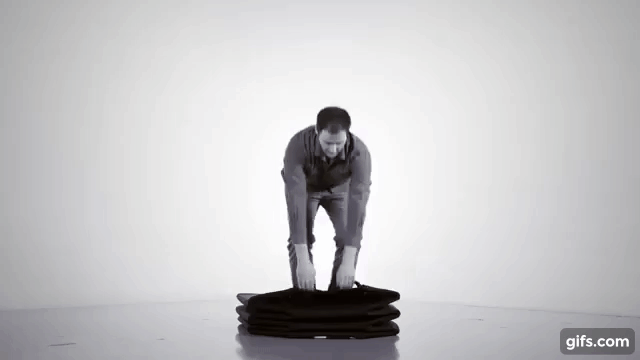Irena's Vow
Sophie Nélisse brings powerful subtlety to the title role in “Irena’s Vow,” accomplishing so much with her eyes, her presence, her ability to shift demeanor and tone quickly depending on the situation. Director Louise Archambault tells the inspiring true story of Irena Gut Opdyke, a Polish Catholic woman who dared to protect a dozen Jews by sheltering them in the home of a Nazi commandant, where she lived and worked as a housekeeper during World War II. Working from a screenplay by Dan Gordon (“The Hurricane”), which he based on his stage play, Archambault reveals Irena’s understated but convincing evolution from a pious and idealistic nurse at age 19 to a pragmatic and resourceful young woman. We witness her innate ability to think on her feet early on when she returns to her home in occupied Poland after a bombing at the hospital where she works, only to find an SS officer waiting there in place of her family. Her quick wit serves her well here, as it does throughout the film, but it’s tied to a deep sense of empathy, so she uses that instinct to help others rather than merely for her own survival. Nélisse, who plays the younger version of Melanie Lynskey’s character on “Yellowjackets,” has an openness that makes her a warm and gentle conduit into this harrowing world. And it’s that likability—coupled with the fact that she’s pretty and looks German—that allows Irena to move up quickly during the war effort to the role of running the villa of Major Rugemer (Dougray Scott), a vain and ambitious man who wants to use the place to throw lavish parties. But prior to that position, Irena oversaw the tailoring operation for several Nazi officers and their secretaries. The “tailors”—all Jewish—came from various walks of life in Poland, and she came to befriend and protect them. The scene in which they stand up one by one, introducing themselves to Irena and revealing their former professions—lawyer, chemist, nurse—is a great example of how Archambault finds quiet humanity within this horrifying setting. When she finds out the Jewish ghetto is about to be liquidated, Irena makes the bold choice to hide these men and women within the major’s sprawling mansion, the renovations of which she’s responsible for overseeing. Watching her figure out every little detail in terms of access, communication, sustenance, and comfort gives the film a propulsive energy. Archambault often focuses her lens on unexpected places—Irena's feet as she repeatedly scurries out of the kitchen to serve hors d’oeuvres to horrible people or the hands of the Jewish survivors as they pass a candle around in a circle on Hanukkah. “Irena’s Vow” features several devastating moments, too, as you’d expect from a film about the Holocaust. One scene involving the fate of an infant is especially gut-wrenching and indicative of the casual cruelty of one Nazi officer in particular, played chillingly by Maciej Nawrocki. Archambault frames it strategically, so it’s not shockingly graphic, but it clearly indicates how witnessing this killing galvanizes Irena. The elegantly suspenseful score from Maxime Navert and Alexander Stréliski accompanies the constant threat of getting caught within this luxurious location. But because she’s such a compelling figure, you’ll wish “Irena’s Vow” had depicted her with a bit more complexity. Gordon’s script singularly portrays her as a young woman full of bravery and honor, one who’s increasingly willing to make difficult decisions and sacrifices. Nélisse’s scenes with Scott grow thick with tension as their characters’ relationship evolves, and Scott’s performance becomes more interesting as the much older Major Rugemer candidly reveals his insecurities. He's very good here, as he gets to show more shading. Irena, in contrast, consistently functions as an almost saintly figure the longer she perseveres. She’s kindhearted and hardworking and never deviates from that mode. Still, this is such a worthwhile story that we can’t look away, and Nélisse is so engaging that we don’t want to.


Sophie Nélisse brings powerful subtlety to the title role in “Irena’s Vow,” accomplishing so much with her eyes, her presence, her ability to shift demeanor and tone quickly depending on the situation.
Director Louise Archambault tells the inspiring true story of Irena Gut Opdyke, a Polish Catholic woman who dared to protect a dozen Jews by sheltering them in the home of a Nazi commandant, where she lived and worked as a housekeeper during World War II. Working from a screenplay by Dan Gordon (“The Hurricane”), which he based on his stage play, Archambault reveals Irena’s understated but convincing evolution from a pious and idealistic nurse at age 19 to a pragmatic and resourceful young woman.
We witness her innate ability to think on her feet early on when she returns to her home in occupied Poland after a bombing at the hospital where she works, only to find an SS officer waiting there in place of her family. Her quick wit serves her well here, as it does throughout the film, but it’s tied to a deep sense of empathy, so she uses that instinct to help others rather than merely for her own survival. Nélisse, who plays the younger version of Melanie Lynskey’s character on “Yellowjackets,” has an openness that makes her a warm and gentle conduit into this harrowing world. And it’s that likability—coupled with the fact that she’s pretty and looks German—that allows Irena to move up quickly during the war effort to the role of running the villa of Major Rugemer (Dougray Scott), a vain and ambitious man who wants to use the place to throw lavish parties.
But prior to that position, Irena oversaw the tailoring operation for several Nazi officers and their secretaries. The “tailors”—all Jewish—came from various walks of life in Poland, and she came to befriend and protect them. The scene in which they stand up one by one, introducing themselves to Irena and revealing their former professions—lawyer, chemist, nurse—is a great example of how Archambault finds quiet humanity within this horrifying setting. When she finds out the Jewish ghetto is about to be liquidated, Irena makes the bold choice to hide these men and women within the major’s sprawling mansion, the renovations of which she’s responsible for overseeing. Watching her figure out every little detail in terms of access, communication, sustenance, and comfort gives the film a propulsive energy. Archambault often focuses her lens on unexpected places—Irena's feet as she repeatedly scurries out of the kitchen to serve hors d’oeuvres to horrible people or the hands of the Jewish survivors as they pass a candle around in a circle on Hanukkah.
“Irena’s Vow” features several devastating moments, too, as you’d expect from a film about the Holocaust. One scene involving the fate of an infant is especially gut-wrenching and indicative of the casual cruelty of one Nazi officer in particular, played chillingly by Maciej Nawrocki. Archambault frames it strategically, so it’s not shockingly graphic, but it clearly indicates how witnessing this killing galvanizes Irena. The elegantly suspenseful score from Maxime Navert and Alexander Stréliski accompanies the constant threat of getting caught within this luxurious location.
But because she’s such a compelling figure, you’ll wish “Irena’s Vow” had depicted her with a bit more complexity. Gordon’s script singularly portrays her as a young woman full of bravery and honor, one who’s increasingly willing to make difficult decisions and sacrifices. Nélisse’s scenes with Scott grow thick with tension as their characters’ relationship evolves, and Scott’s performance becomes more interesting as the much older Major Rugemer candidly reveals his insecurities. He's very good here, as he gets to show more shading.
Irena, in contrast, consistently functions as an almost saintly figure the longer she perseveres. She’s kindhearted and hardworking and never deviates from that mode. Still, this is such a worthwhile story that we can’t look away, and Nélisse is so engaging that we don’t want to.



















